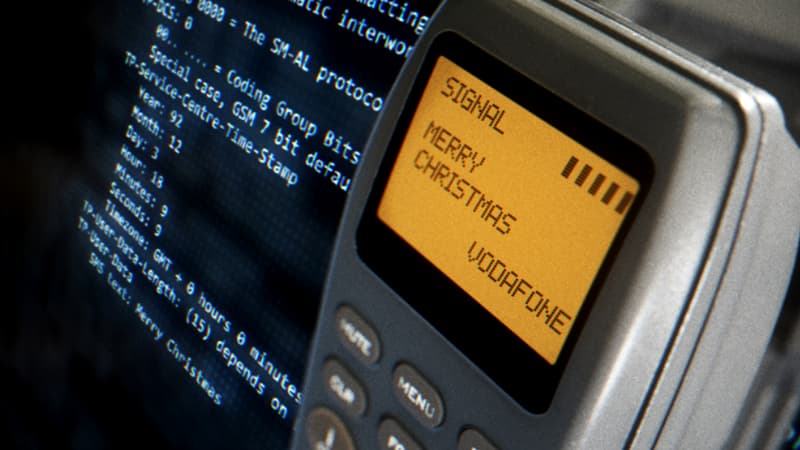“JoyE annivRsR :-)”: Given the rise of social networks and online messaging services such as WhatsApp, Messenger or Telegram, SMS (“short message service”) seems to be a digital species in decline, thirty years after its its appearance, without disappearing from our mobile phones.
Sample of its “collector” dimension, the first SMS in history, transmitted by the operator Vodafone on December 3, 1992, was auctioned in December 2021 by the Aguttes house in France… in the form of NFTs, these unique and digital certificates products that are revolutionizing the use of the Internet.
european technology
Received at the time by Richard Jarvis, a Vodafone employee, the transmission from a computer of this 15-character SMS to say “Merry Christmas” (Joyeux Noël) revolutionized communication modes due to its ease of use.
Limited to 160 characters, forcing its users to develop a sometimes cryptic spelling language, such as emoticons built with different punctuations, text messages are now exchanged unlimited and enriched with photos, videos and other multimedia content ( MMS).
But at the time, in France, “an SMS cost 1 franc,” says Jean-Michel Huet, a BearingPoint telecommunications specialist. “It’s as if each tweet today costs 15 euro cents.”
the great decline
If they were hyper-popular until the early 2010s, particularly for best wishes on New Year’s Eve, the use of person-to-person SMS continues to decline.
In the UK alone, the figure has quadrupled in ten years, falling below 10 billion in the first half of 2022, according to Ofcom, Britain’s telecoms regulator.
Main cause, the rise of social networks (Facebook, Snapchat, Instagram) and especially online messaging services such as WhatsApp, Messenger, iMessage, Viber or Telegram, which avoid “roaming” (roaming fees abroad) by go through the internet
In Asia, messaging services WeChat (China), Line (Japan) and KakaoTalk (South Korea) also won the vote, with innovations that appealed to the younger generation, such as the ability to create chat groups or even confirmation. reading messages.
Example: in the age group of 16 to 24 years, the use of online messaging grows 53.73% in one year, while the use of SMS decreases 29%, according to a study by the Body of European regulators of the electronic communications published in 2021.
The SMS has not said its last word
However, SMS does not admit defeat in certain regions of the world, such as Nigeria, the most populous country in Africa. In 2021, almost 10 billion text messages were sent there, 15% more than the previous year, according to a report by the Nigerian Communications Commission.
If the vast majority of Nigerians have a mobile phone, only 44% of them had internet access in 2021. And the cost of an SMS, 4 naira (0.008 euros) compared to that of an internet connection (around 1 euro for 2 GB), it remains competitive in this country where nearly one in two lives on less than $2 a day.
For its proponents, SMS also remains essential as an “identity and security verification tool”, from accessing your online bank account to confirming receipt of a package, including reading a Covid test.
Another indication of its vitality: the explosion of advertising SMS and “transactional” applications, which should cross the $50 billion bar in revenue by 2023 worldwide, according to Juniper Research.
And SMS topped up or related to payment, known to the general public through TV games or calls for donations, “also have the vocation to develop as a digital channel for mobile payments in emerging countries,” says Jean-Michel. Huet, “especially in Africa.
Source: BFM TV


